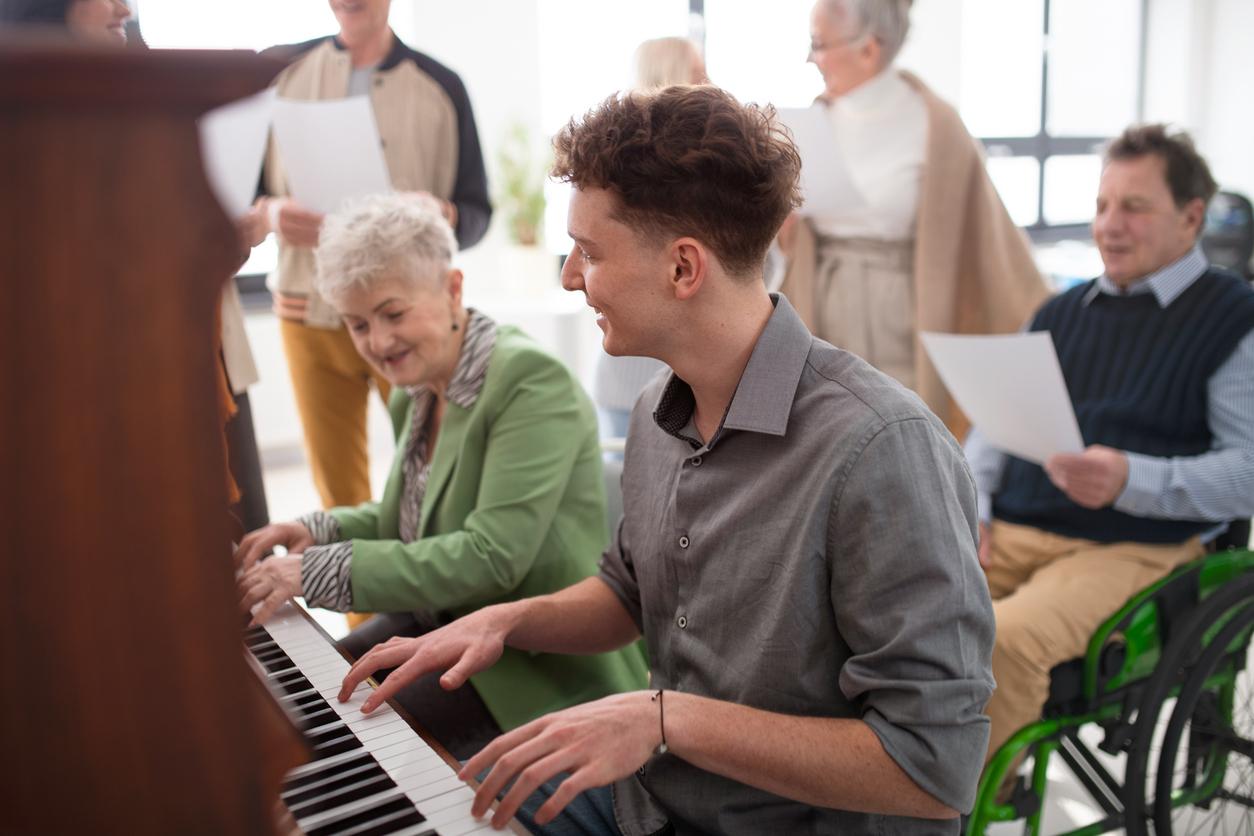
Dealing with dementia
“Grandma is getting a little demented.” The word ‘dementia’ has come to mean almost the same as ‘forgetful’ in our language. But dementia is more than just memory loss. How do you know if someone has dementia and can you do something about it?
When do we speak of dementia?
The word dementia indicates that there is a decline in the functioning of the brain. Not only the memory is affected, but also, for example, the use of language (aphasia), motor planning (apraxia) and the recognition of people and objects (agnosia). Someone with dementia experiences these symptoms during normal daily activities.
Different types of dementia
The decline can be the result of many conditions. Alzheimer’s disease is the most well known. But Parkinson’s, Creutzfeld-Jakob, Huntington and even AIDS can also cause dementia. All of these result in the patient’s ability to function less well, but in what way exactly depends on the location and nature of the dementia.
Course
The onset of dementia, particularly Alzheimer’s, is so insidious that it often goes unnoticed. People with dementia often keep their problems hidden and their partners often absorb many problems. They help with lost items and take over tasks. As a result, problems sometimes only become apparent in unexpected situations. For example, if the partner dies or the patient breaks a hip. A person with dementia has difficulty adapting to such a new situation. The decline then suddenly becomes poignantly clear.
Strange situations can arise. The glasses that have been lost for days are found in the freezer. The fridge is overflowing with a supply of milk that is replenished every day. The patient asks about people who have been dead for years, or suddenly no longer knows how to make coffee. The once civilized man pulls one lewd joke after another, in a situation that doesn’t fit at all. Many people also become disoriented. This means that they no longer know where they are and in what time they live. For example, they mistake their child for their mother.
Because people with dementia also notice that something is wrong, they can become suspicious. They think others are moving things around or being fooled. Or worse; that other people think they are going crazy. Gradually, so many functions will be lost that patients will become more and more in need of help. They run the risk of losing contact. The world around them is no longer recognizable. They are more in their heads, with their own memories. It is striking in Alzheimer’s that the patient mainly has difficulty with complex tasks. Socially, people with Alzheimer’s remain very skilled.
Cause
Genes play a major role in most types of dementia. These determine how the brain develops. In Alzheimer’s disease this manifests itself in an abnormality in protein production. Protein accumulations, so-called tangles and plaques develop in the brain, which make the transfer of information more difficult. Other possible causes, lack of vitamins or exposure to heavy metals, are still unproven.
Diagnosis
To be sure of dementia, it is wise to visit a doctor or a memory clinic. They can determine with certainty whether it is dementia and of what type. They can also rule out other causes of the problems. Many of the symptoms can also indicate delirium, normal memory loss, depression or anxiety. Read here that symptoms can be a sign.
Treatments
There is no cure for dementia. It is a neurodegenerative disorder. This means that the course cannot improve, at most you can slow it down. By living a healthy life, both mentally and physically, the body can better cope with the deficiencies that dementia entails. As a result, for example, the brain is trained in searching for information and the heart ensures good blood flow to all those nerve cells in the brain.
Quality of life can also be maintained for as long as possible. Reminders or aids at home can contribute to self-reliance. Bystanders can learn how best to help and approach the person with dementia. Understanding what dementia means is an important first step.
More information about the differences between dementia and memory problems can be found on the Alzheimer’s Netherlands website.















